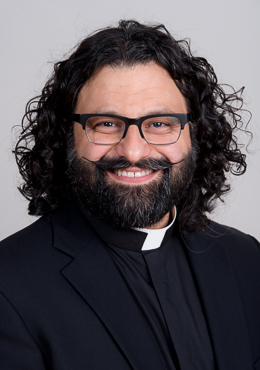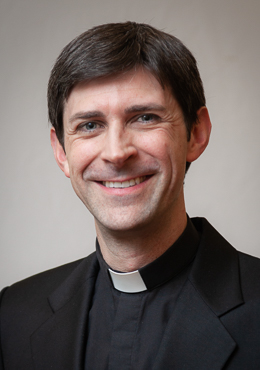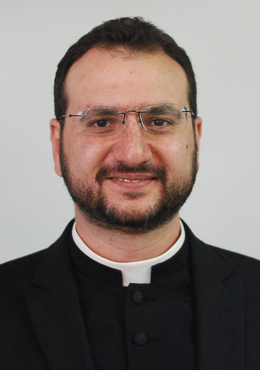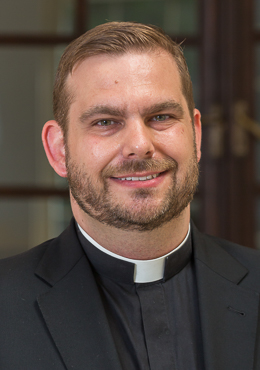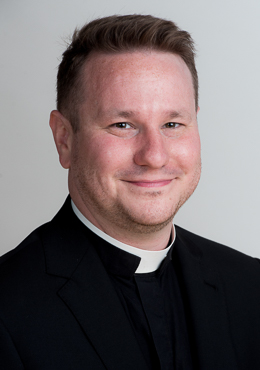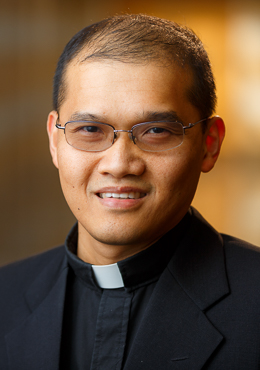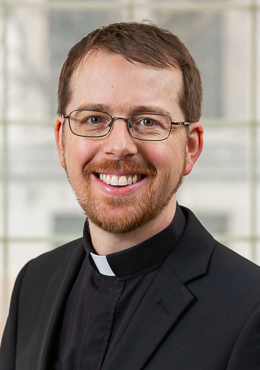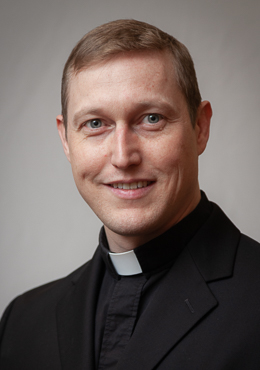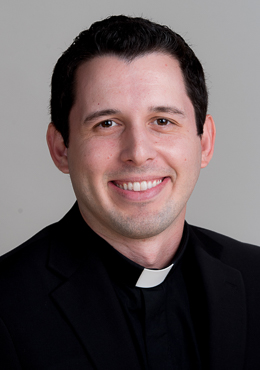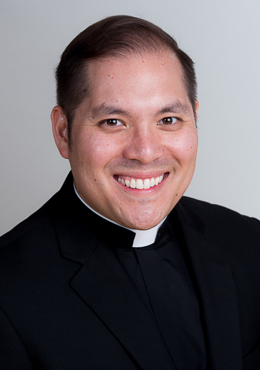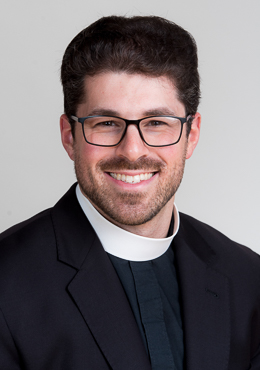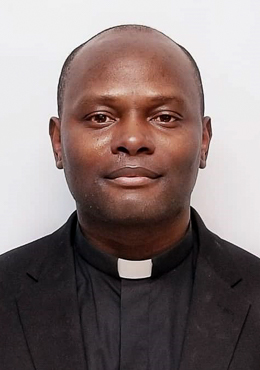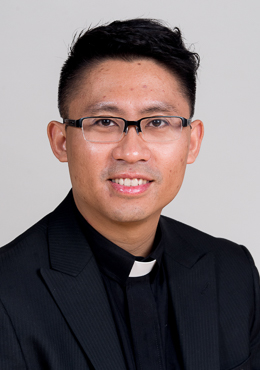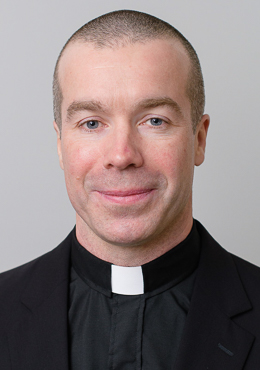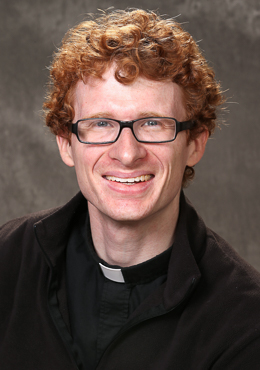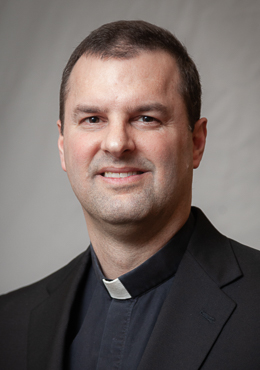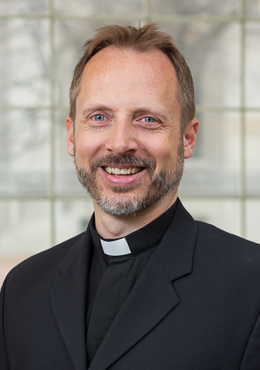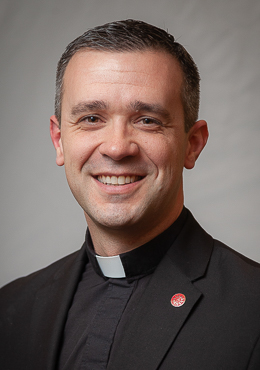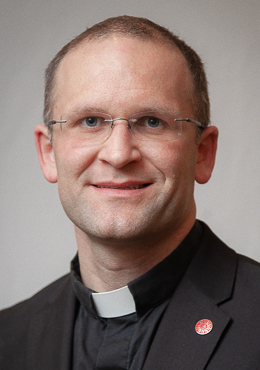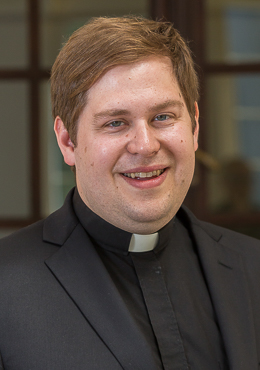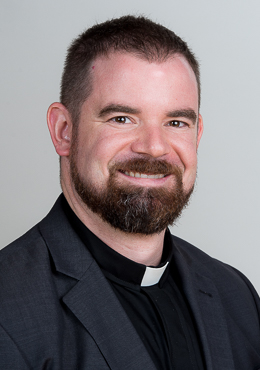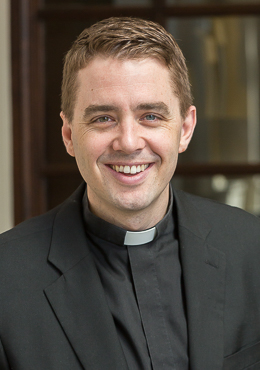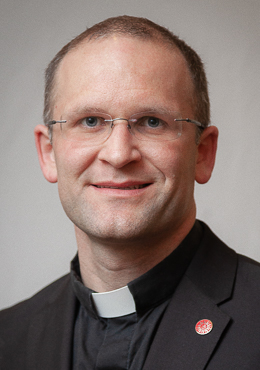
Province: USA West
Birthday: April 9, 1985
Hometown: Sutherlin, Oregon
Education:
Bachelor’s degree, global security studies, Embry-Riddle Aeronautical
University
Master’s degree, social
philosophy, Loyola University Chicago
Master of Divinity, Boston College School of Theology and Ministry
Highlights of Jesuit Formation:
Served as a pastoral
care worker with Jesuit Refugee Service at Dzaleka refugee camp in Malawi
Worked inside Chicago’s juvenile hall with the Precious Blood Ministry of
Reconciliation, a ministry that seeks healing in communities that have been impacted
by violence and conflict
Worked with Jesuit
Restorative Justice Initiative in Los Angeles, giving retreats in
prisons throughout California
Post-Ordination:
Will serve at St.
Ignatius Parish in San Francisco, California
Biography:
Travis D. Russell, SJ, grew up in the small town of Sutherlin,
Oregon. He earned a bachelor’s degree in global security studies from
Embry-Riddle Aeronautical University in Prescott, Arizona, where he went
through RCIA and became Catholic. His path to the Jesuits was marked by many
improbable twists and turns, including an influential Franciscan who was
instrumental in his discernment. After working for a year, he applied to the
Society, even though he did not know any Jesuits. In 2008 he entered the
novitiate. As a novice, he volunteered at the Jesuit Restorative Justice
Initiative (JRJI), was an assistant at L’Arche Seattle and taught at Verbum Dei
High School, Los Angeles. He was then missioned to Loyola University Chicago
for first studies, where he earned a master’s in social philosophy and worked
inside juvenile hall with the Precious Blood Ministry of Reconciliation, a
ministry that seeks healing in communities that have been impacted by violence
and conflict. His next mission was to Malawi, where he worked for Jesuit
Refugee Service as a pastoral care worker at Dzaleka refugee camp. He was then
missioned back to Verbum Dei High School, where for two years he taught
religion and helped in campus ministry. In 2017, he was missioned to
Guadalajara, Mexico, to study Spanish, and afterward was missioned to the
Boston College School of Theology and Ministry to study theology. In Boston, he
served as a deacon at St. Mary of the Angels, a warm and lively parish located
in the neighborhood of Roxbury. (USA West
Province)

Travis (center) with fellow Jesuits in Mexico.
What are three words a family member or fellow Jesuit would use to
describe you? (Ask someone.) Do you agree with his or her selections?
On my
bookshelf I have a framed list of words that my community gave to me for my
birthday, and they are words that are supposed to “describe me.” The list
includes words such as “resilient,” “humble,” “Jesuit,” “magnanimous” and “travieso,” which means “trouble maker”
or “mischievous” in Spanish. I would say the only one I agree with is the
latter. The others are too kind — and I’m not just saying this because I’m
“humble.” They are too merciful and give me too much credit, which I think is a
truism for us all: others see us in a better light than we see ourselves.
Tell your vocation story. One catch: You must use only six words.
More
surprises than certainty. All grace.
Imagine you could travel back in time and meet yourself the first day
you entered the Society of Jesus. What’s one piece of advice you’d give to
yourself?
It’s not
really advice, but more of a reminder: You’ll never experience more joy in your
life than being a Jesuit. Wait, maybe that is advice: Never stop being
grateful!

Travis with his grandmother, who has had a big influence on his life.
What is your favorite book, movie, music, or TV show you’ve encountered
since entering the Society and why do you love it?
My favorite book since entering the
Society is "Lying Awake" by Mark Salzman, which, coincidentally, I
read in an interview is Paul Farmer’s favorite book — and his is my second
favorite book, “Mountains Beyond Mountains.” I love “Lying Awake” because it’s
a book about hair-raising discernment, something Ignatius was known for.
